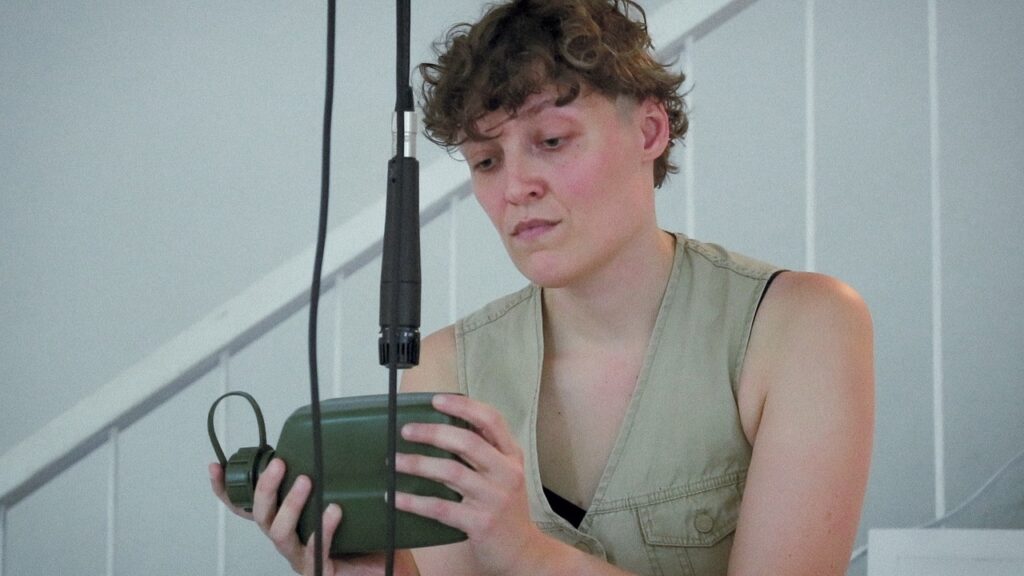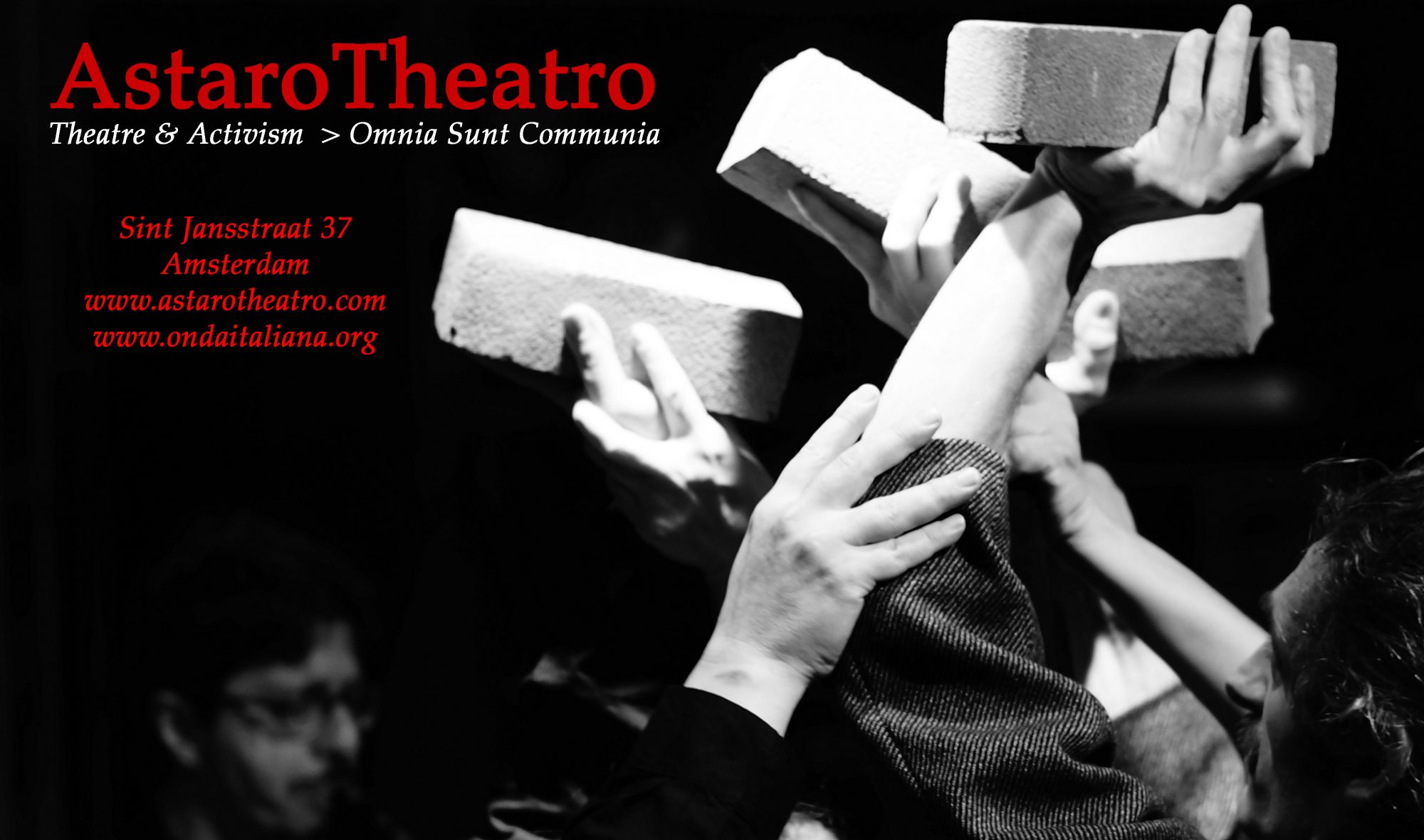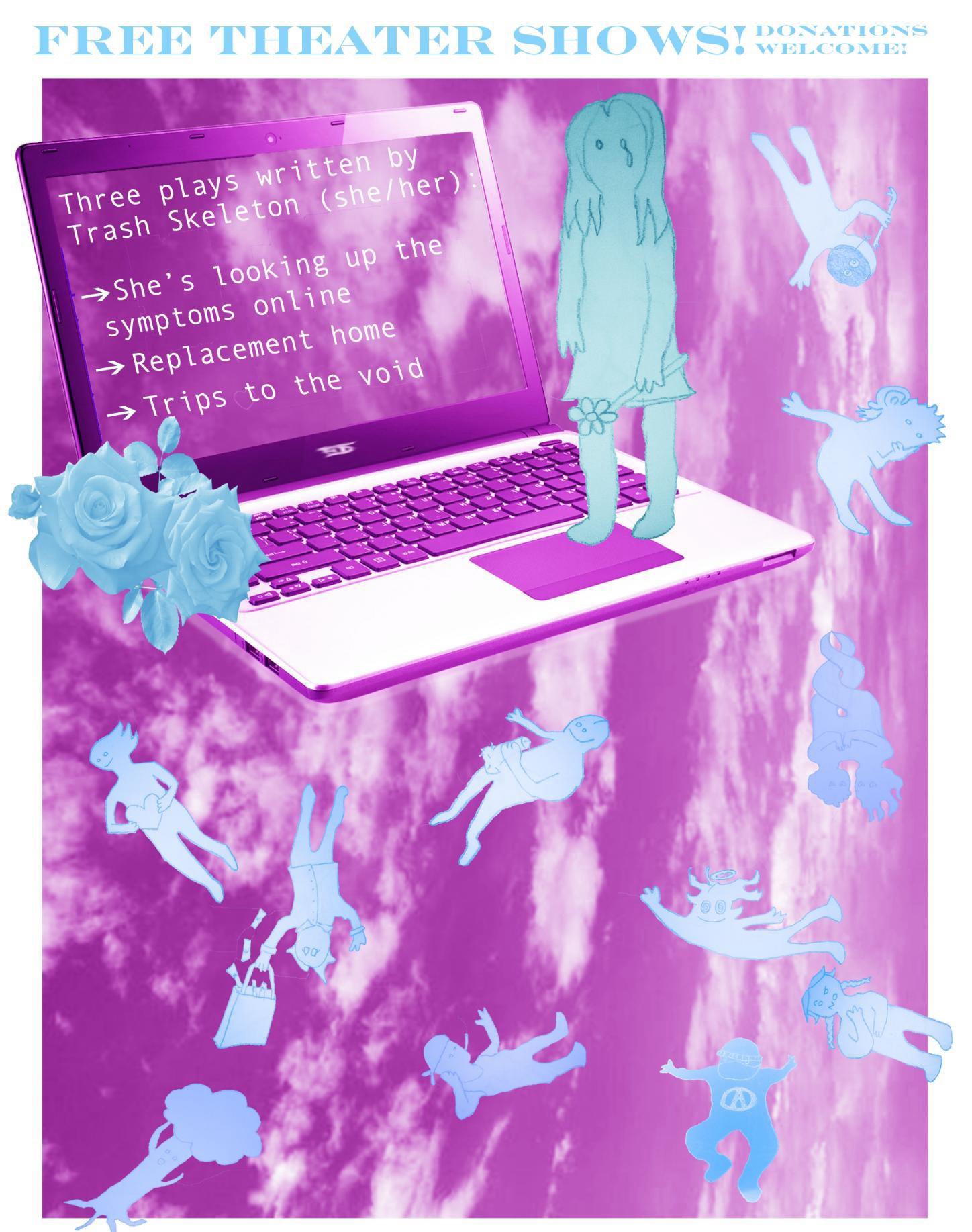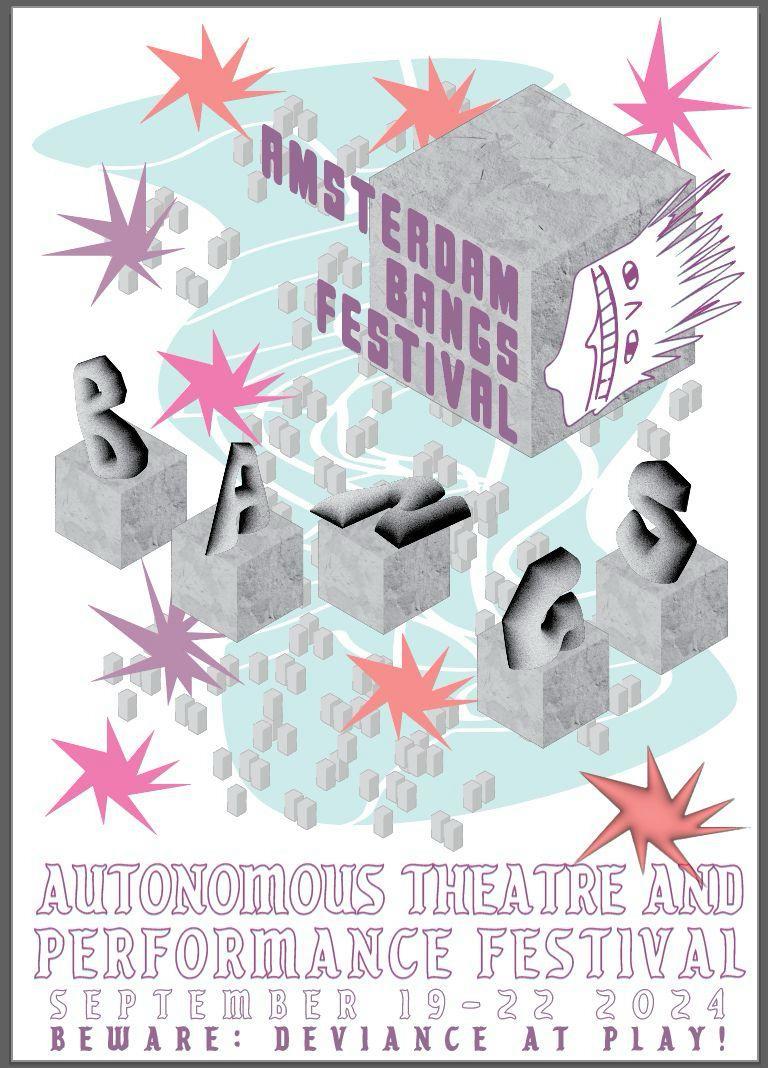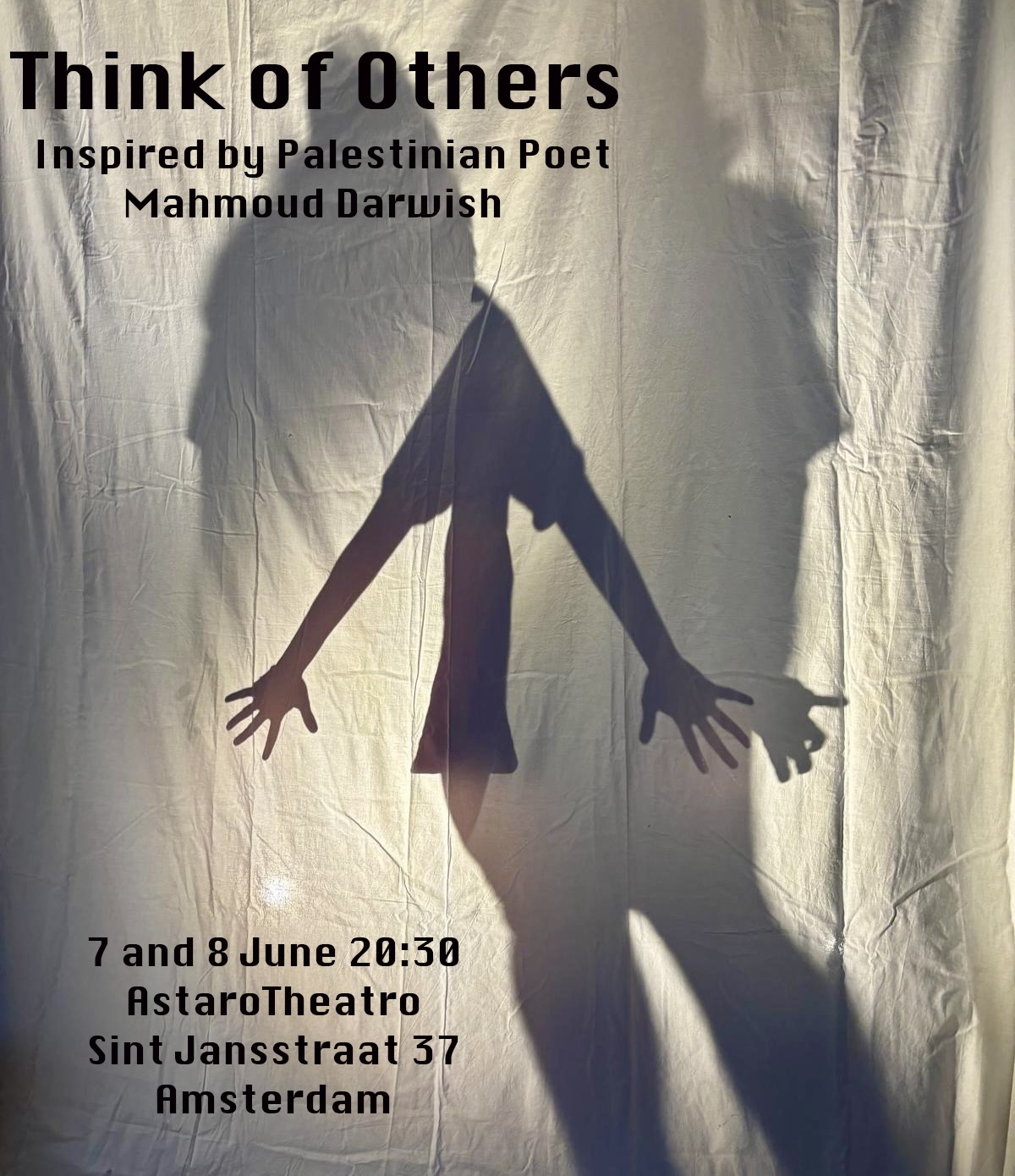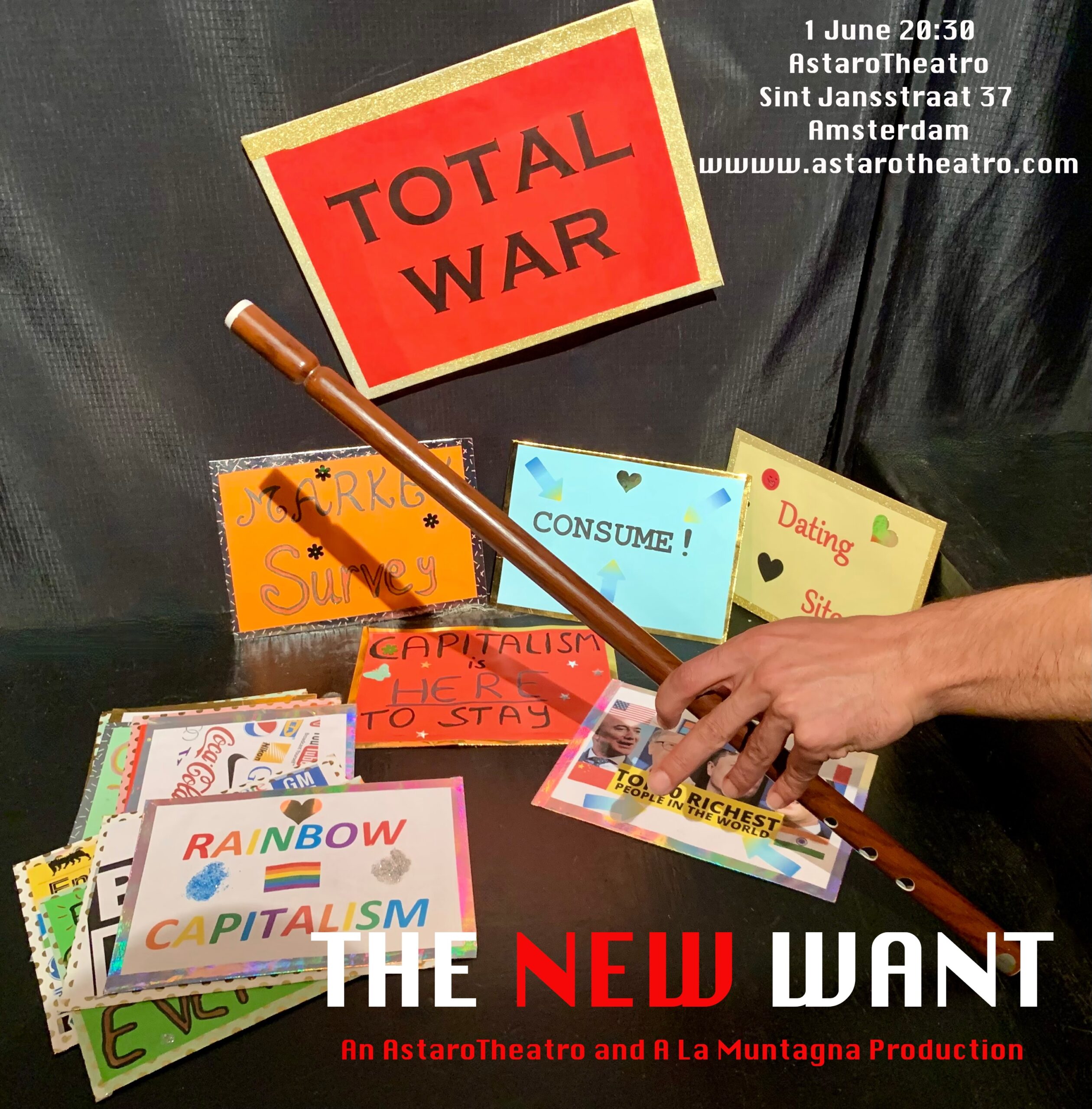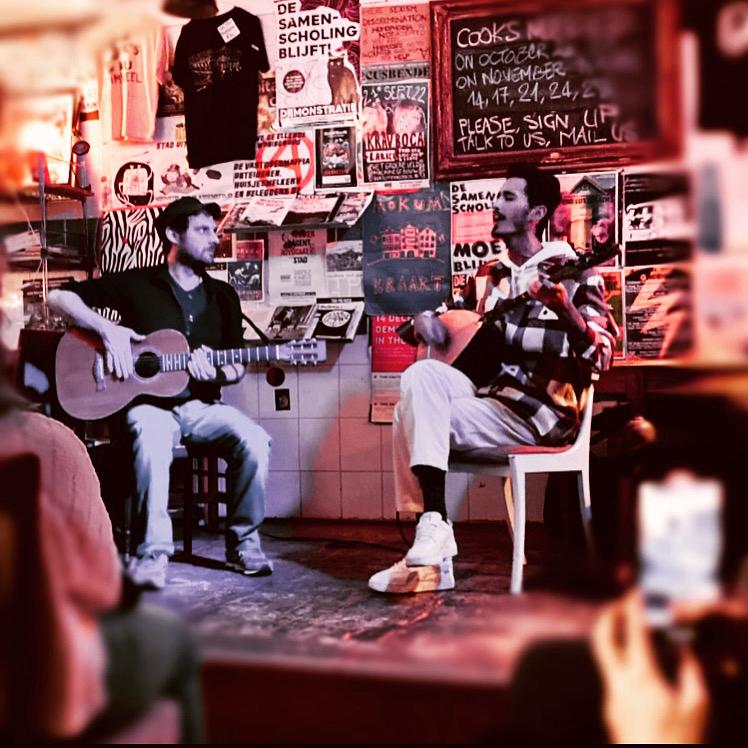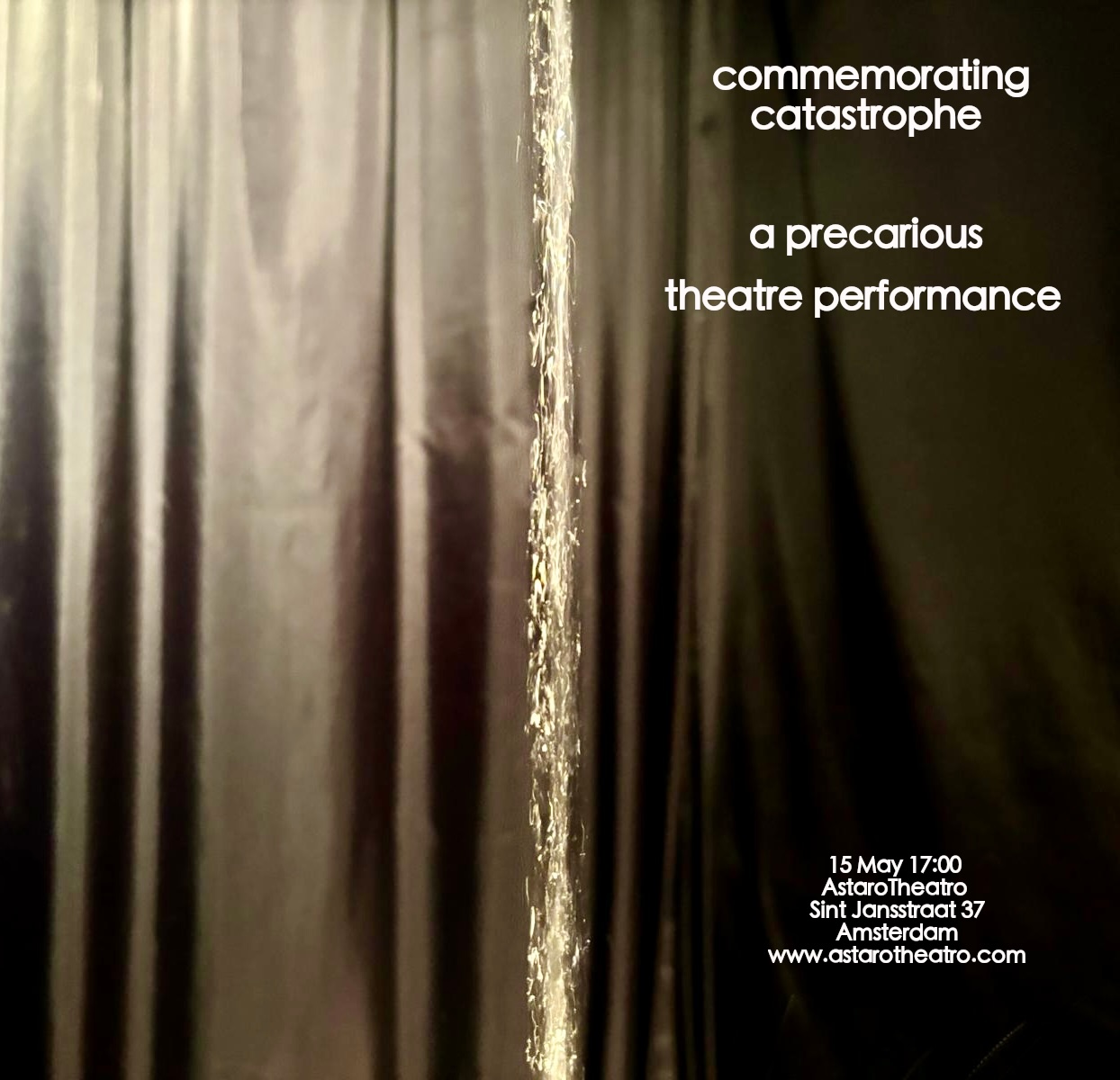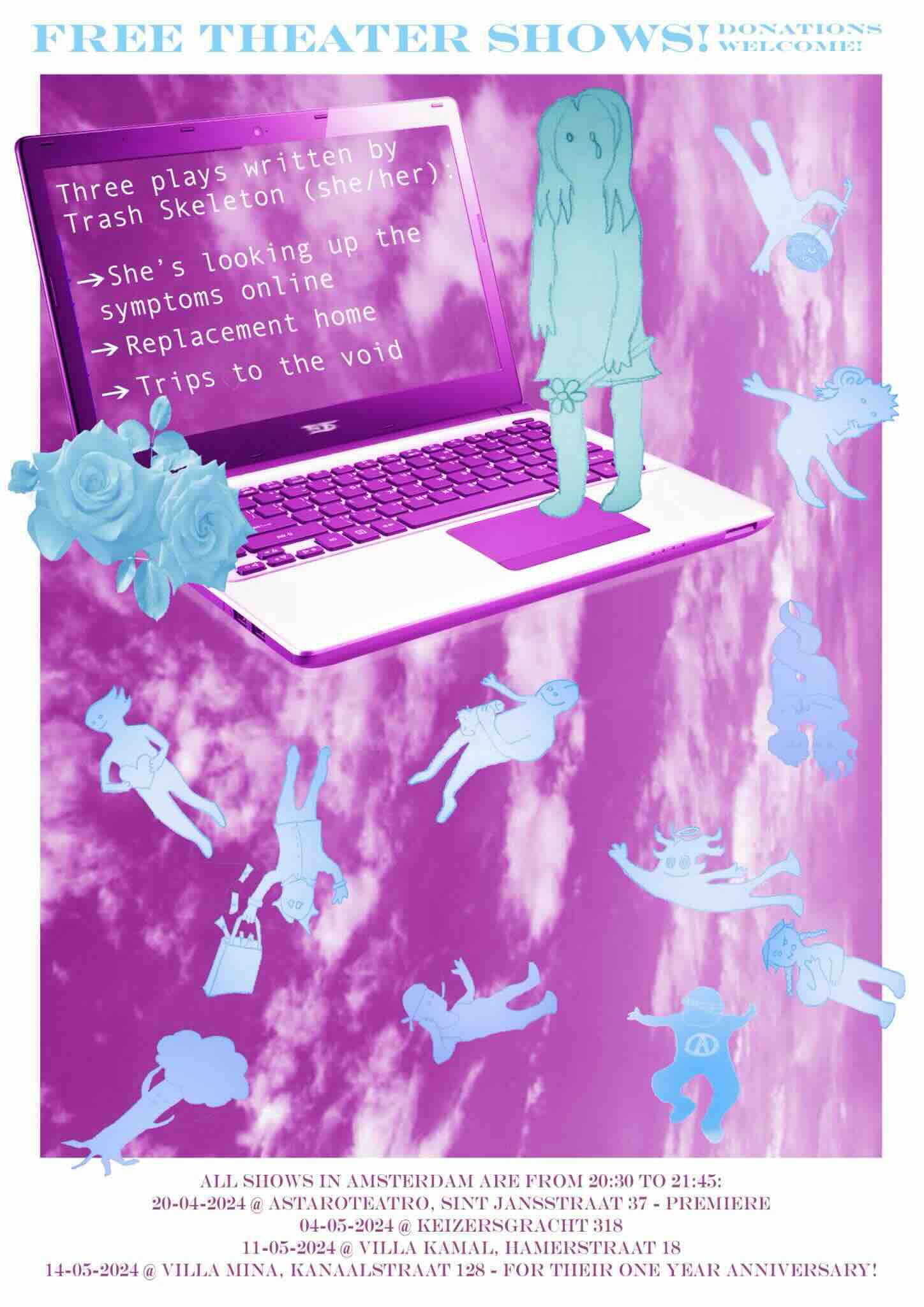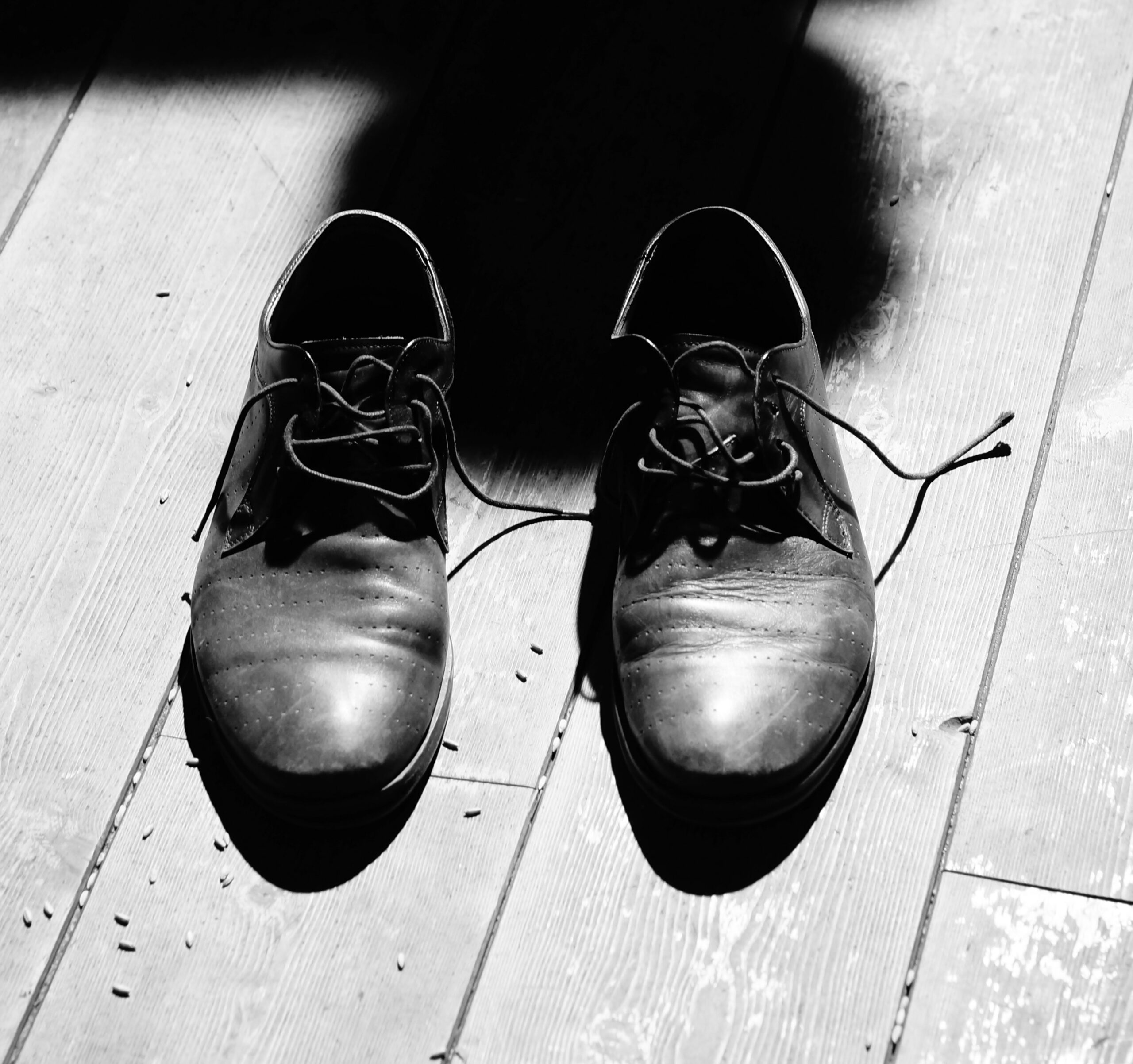Reflexions on Nothingness
A confused, nonlinear brainstorming
A call to give answers to many random questions
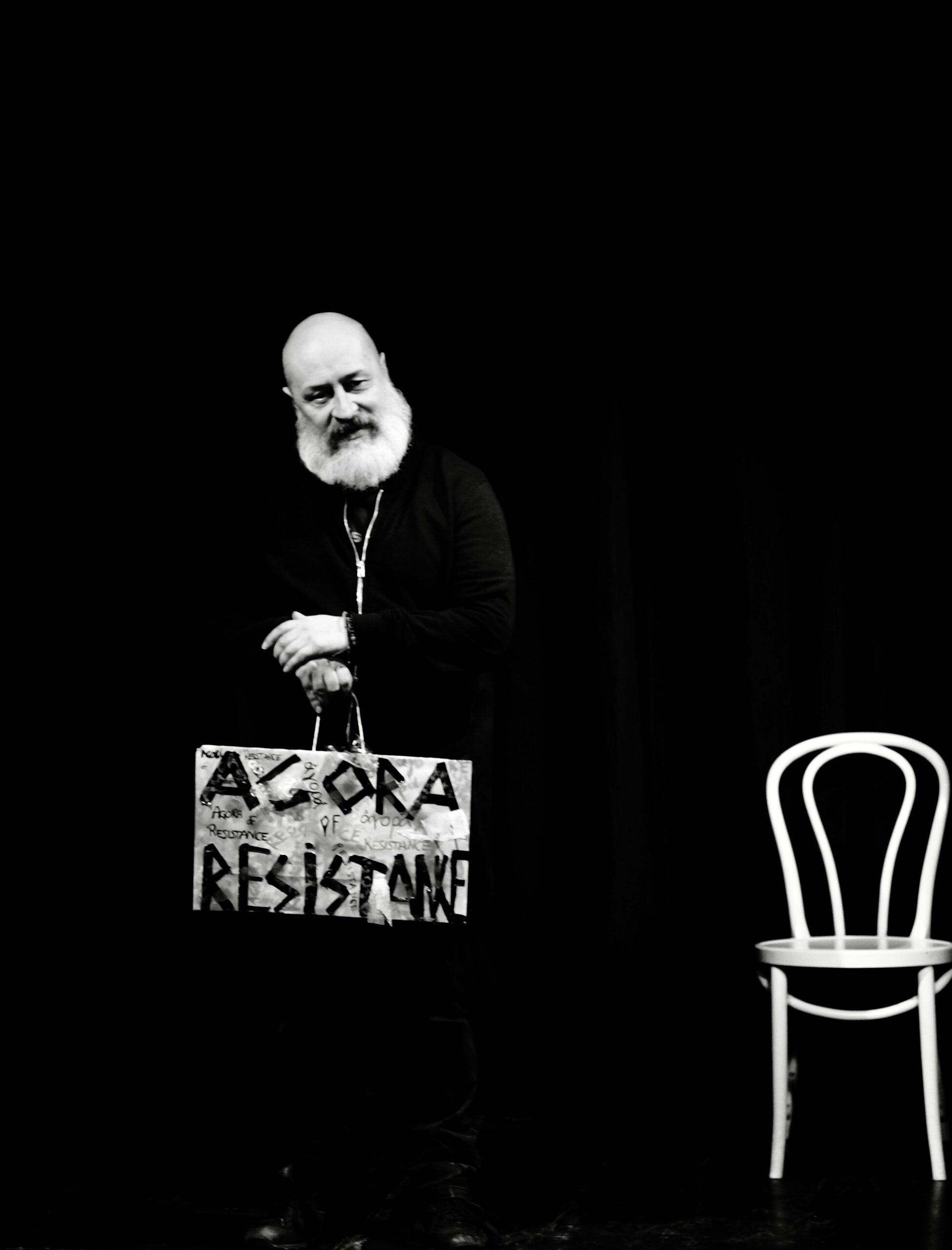
Why nothing seems to make a difference? When asking this question the many answers to that nothing space from society to politics, from awareness of genocide to theatre.
In this context, nothing includes knowledge and understanding of a phenomenology. Nothing confronts us with the awareness that we have of human destruction and exploitation while still doing nothing to improve the situation, nothing to make a change. And even when something seems to be done, this is just appearance, since nothing really happens in order to cease this systemic destruction and this exploitation, nothing really starts a process of system change.
Nothing really happens? Or maybe something happens. It’s hard to say, but by acknowledging that something happens, aren’t we simply trying to keep this entity called hope alive?
When we are faced with the dehumanization and exploitation of the other, shouldn’t we listen to the words of the poet of Think of Others?
As Palestinian genocide, geopolitical wars, environmental disaster, patriarchy, exploitative capitalism, imperialism and migrants drowning in the Mediterranean make their way to our consciousness, shouldn’t humanity react in a radical and unconditional way to put an end to all this?
As a human and as an artist I often feel the painful bite of frustration and hopelessness for all this. It’s just like to stand in front of the worst phenomenology ever, to touch catastrophe with your own hand while realizing that nothing is done to put an end to it. Humanity just let all this happen. Humanity does nothing to stop the horror. Even though being aware of the horror, people only seem to care about nothing but their own little private interests. Nothing meaningful happens. Nothing offers a solution. Nothing?
As an artist I’ve always been aware that “ars gratia artis” is a boring, futile, bourgeois nonsense and that arts don’t happen in a vacuum. Arts should confront society with its shortcomings, challenge corporate mediocrity and promote unconventional non-mainstream narratives.
As a theatre practitioner I’ve always been concerned about and confronted with the impact that my theatre, our theatre, produces. The impact of our theatre on people’s minds. Does our theatre, called AstaroTheatro, really make a change? Does it really make a difference? Does it engage with people’s minds, bodies and souls? Or is AstaroTheatro just the whisper of a moment in a world of nothing where nothing seems to make difference?
Sure, in its theatre practice AstaroTheatro creates participation and community on a daily basis. This has a value and it is often praised by its self-created communities. But how sustainable is this? How coherent, long lasting and grounded are these AstaroTheatro communities? To which extent does this participatory theatre touch people’s minds so that their actions refuse to contribute to the general nothingness of our times and on the contrary generate the needed energy to challenge systems of exploitation? How do AstaroTheatro narratives help our communities to envision a reality where another world is possible?
These days when being exposed to artistic contents, I can’t help thinking about how inconsistent they are in challenging the nihilism of present nothingness. And I can’t help thinking about how tiny AstaroTheatro with its tiny existence is also part of this inconsistency and this nothingness and thus unable to challenge the horror in order to offer a fertile ground to a world of sustainable humanity.
In theatre we more and more see inclusion, meaning the narratives originated by marginalized or racialized communities. So the presence on stage of performers of color and performers with migrant backgrounds is out there to reassure us about an equal access to opportunities and resources of our societies. At first sight this is of course a positive development. But here comes nothingness. When these performers operate in a mainstream environment, how effective are their narratives for fundamental change? To which audience do they cater? Does their theatre contribute to social change, system change, or are we again of front of the “nothing seems to happen” situation?
And then how tokenized are theatre performers belonging to minority groups? If we talk about queer performers with queer narratives, how relevant is their work for visibility, acceptance and emancipation? To which extend does queer theatre challenge patriarchy and systems of capitalist oppression?
In the theatre landscape when opening spaces to performers from Palestine, Africa or any other exploited and oppressed part of the world, are we really witnessing a process of decolonization of the Western minds? Are we experiencing a transition, a change in the capitalist system and in its mindset towards a more sustainable and less exploitative society? And even when these performers cater to their own communities instead of a white audience, what is it? Is this empowering a given community or is it simply reinforcing systems of segregation and identity politics?
The power of artists. Cultural intifada. Resistance through art. How I wish all this could tear down the wall, how I long for a society where human value is not expressed in money and exploitation! If only the power of artists could contribute to stop wars and capitalism!
And when talking about value, how strange is it to transform an immaterial entity like theatre into some kind of commodity. A commodified theatre can then become the recipient for subsidies, fundings, investments, promotion, marketing. How can this even claim to challenge nothingness and contribute to anything other than bourgeois entertainment and hedonism? Is cultural intifada possible when the capitalist free market puts its hands on it?
The power of grassroots, community based theatre can be relevant because it’s less commodified and hierarchic and more joyful than mainstream theatre. It creates participation and solidarity. AstaroTheatro has always embraced this bottom-up participatory theatre and by doing so it aims at creating community and awareness by gathering around the necessity of grassroots, multidisciplinary, multilingual, transcultural artistic expression.
But make no illusions. Tiny AstaroTheatro in almost two decades of activity is also part of that “nothing seems to make a difference, nothing seems to make a change”. AstaroTheatro narratives have always been unconventional and non mainstream, they have always been inclusive and participatory, but unfortunately it takes much more than this to even scratch the surface and activate a process of system change. Recently someone told me that if a theatre performer can start a process of awareness in just one person’s mind, if he or she can contribute to the mindset shift of even one person, well that’s already a result worth living and working for. Maybe. But we live in a society that needs to be radically transformed into something way more sustainable so we need to see large, grounded and radical changes real soon.
As AstaroTheatro struggles for its survival in this highly competitive and deeply unfair neoliberal society, as it operates in this capitalist world where rents and bills have to be paid, where financial solvability decides your very existence and continuity, the future is uncertain and nothingness is just around the corner.
So while I make no illusions for myself and for others, I keep creating, we keep creating an illusion called theatre because we need to tell each other stories in order to survive.
Quote: “We are creatures of narratives. Stories are the means by which we navigate the world. When we have no story that explains the present and describes the future, hope evaporates. Despair is a state we fall into when our imagination fails. Without a restoration story that can tell us where we need to go, nothing is going to change, but with such a restoration story almost everything can change” (Sustainable Humans)
We are a society of altruists governed by psychopaths, that’s why it’s crucial to foster politics of belonging and actions of care and healing. Sure, tiny AstaroTheatro is not going to make any radical change. But on the other hand to sit back and do nothing is also not a viable option to challenge nothingness. And while we are on the road, let’s just quote that “I become another” and that it’s “Because the house is farther and the road to it prettier” (Mahmoud Darwish)
Roberto Bacchilega
Artistic Director at AstaroTheatro
